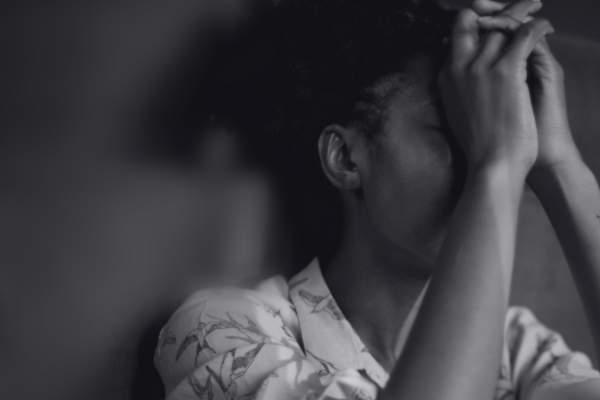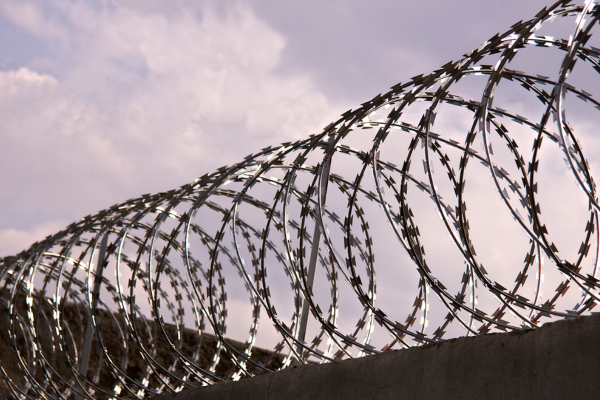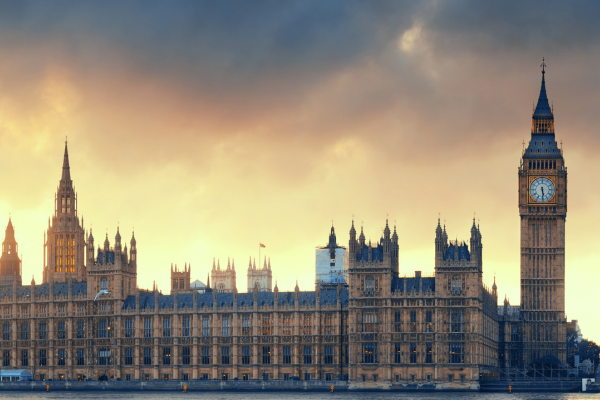By Agnes Tanoh, Detention Campaigns Spokesperson, and Gemma Lousley, Policy and Research Coordinator, Women for Refugee Women
On 18th February, Women for Refugee Women launched a legal challenge against the Home Office, focused on their decision to lock up women in the new Derwentside immigration removal centre (IRC) without access to face-to-face legal advice. Our legal challenge argues that detaining women without access to in-person legal advice impedes their access to justice, and discriminates against them.
It first emerged that the Home Office was planning to open a new immigration detention centre for women just over a year ago. The site chosen for this new detention centre, near Consett in County Durham, has a traumatic history.
It was previously Medomsley Detention Centre, a prison for young men aged 17-21. During the 1970s and 80s hundreds of young men were physically and sexually abused by staff there. Following this the site was reopened as Hassockfield Secure Training Centre, also a youth prison, where in 2004 14-year-old Adam Rickwood became the youngest child to die in custody in the modern era when he took his own life there.
By renaming the site ‘Derwentside’, the Home Office appears to be attempting to erase this disturbing history. Women for Refugee Women have been campaigning alongside the local groups No to Hassockfield, Abolish Detention – Hassockfield and Durham People’s Assembly since the Home Office’s plans to open Derwentside IRC first became known. This campaigning has included monthly protests at the site, as well as working with MPs who have spoken out against the plans. Unfortunately, at the end of 2021 the first women were detained at Derwentside – but our fight continues.
One of the most problematic aspects of Derwentside is that women who are locked up there are unable to access face-to-face legal advice. In July last year, the Legal Aid Agency announced the procurement process for the Detained Duty Advice Scheme (DDAS) for Derwentside. Under the DDAS, people who are held in immigration detention are entitled to a 30-minute appointment with a solicitor from a legal aid firm. During this meeting the solicitor assesses the person’s immigration case and decides if they can take the case on.
However, just a few months after this procurement process started it was cancelled, because the Legal Aid Agency didn’t receive enough tenders that met their minimum requirements. Instead, it was explained that there would be ‘contingency arrangements’ for legal advice at Derwentside, which will be in place until at least 30th June 2022.
Under these contingency arrangements, some of the legal aid firms that deliver advice in Yarl’s Wood are now also providing legal advice in Derwentside. As a result, appointments under the DDAS at Derewentside only take place by phone. This is because many of the firms contracted to provide advice there are based in London – which is over five hours away from Derwentside by car, and over four hours away by public transport.
It is also highly unlikely that if a legal aid firm takes on a woman’s case, they will come to see her face-to-face for a follow-up appointment. This is because of the time it would take them to get there, and also because Legal Aid Agency guidance on what legal aid providers can charge for states that round trips of five hours or more ‘may be difficult to justify’.
This contrasts with other detention centres in the UK, where men are detained. A Freedom of Information request submitted by the solicitors representing us in our legal challenge, Duncan Lewis, has revealed that even during the pandemic face-to-face legal visits have been taking place in men’s detention centres in significant numbers.
The lack of face-to-face legal advice for women detained at Derwentside is problematic for a number of reasons. Our research has demonstrated that the majority of women in detention are survivors of rape or other forms of gender-based violence. Survivors of such violence experience significant and particular difficulties disclosing what has happened to them. Many women we have spoken to have said they felt too ashamed to talk about their previous experiences. So, being denied access to in-person legal advice will exacerbate the difficulties women already face in disclosing these experiences – since they will be expected to talk about what happened to them to someone they have never met, over the phone.
One of us (Agnes, Women for Refugee Women’s Detention Campaigns Spokesperson) has personal experience of detention, having been locked up in Yarl’s Wood for three months in 2012, before being granted refugee status in 2018. From my own experience I know how important it is to meet your solicitor and build trust so that you can tell them your story. Imagine having to tell a stranger about the most horrific intimate violence you have suffered; it’s just not right. Being in the same room with someone, and seeing their body language, is so important. To see a warm and kind face is like a hug when you need it most.
The problems that women face in disclosing traumatic experiences over the phone are made worse by the fact that the mobile reception at Derwentside is very poor. We have often found it difficult to get hold of women we are in touch with there, and we have also been cut off during phone conversations on numerous occasions. It also appears to be very difficult for women to find quiet and private spaces within Derwentside that also have mobile reception, which poses an additional barrier to disclosure.
Difficulties in disclosing previous experiences can have significant negative consequences for women in detention. It can mean that it is not identified that they have an asylum or trafficking claim – meaning that they are at risk of removal from the UK, back to an unsafe situation. It can also result in women being detained for very long periods of time, which causes immense harm to them and their families.
A woman who was detained at Derwentside and struggled to access legal advice there has also issued a legal challenge at the same time as Women for Refugee Women, based on her personal experience. While she was still in detention, she said:
‘It has been really difficult for me to find legal advice since coming to Derwentside IRC. I spoke with many employees here about getting a lawyer, but they gave me excuse after excuse, always telling me to come back tomorrow. I was detained in Derwentside for around 1.5 weeks before a lawyer took on my case on a Friday afternoon, even though my removal directions were on Monday. I was really struggling and suffering. If I hadn’t received good legal representation, I would have been removed by now and I’m afraid that I would be dead.’
The Home Office must be held to account to what they are doing to women at Derwentside. We hope that our legal challenge will do this. We are currently fundraising to help us cover our legal costs: we would very much appreciate any donations to help us reach our target!
In our legal challenge, Women for Refugee Women is represented by Toufique Hossain, Shalini Patel and Emma Dawson of Duncan Lewis Solicitors, who have instructed Alex Goodman and Miranda Butler of Landmark Chambers. The individual claimant is represented by Lily Parrott and Jamie Bell of Duncan Lewis Solicitors.









